|
Limitar tu búsqueda
[+–] Compilador o editor
- Aguilera, Nelly (6)
- Durán, Luis (4)
- Garro, Nora (1)
- Hernández Sánchez, José Antonio (1)
- Martínez, Gabriel (3)
- Meléndez, Jorge (1)
- Reyes Godelmann, Iker (2)
- Suárez, Rosa María (1)
- Svenson, Hans (1)
- Valencia, Anel (1)
[+–] Editorial
[+–] Fecha
[+–] Formato
[+–] Idioma
[+–] Tipo de documento
[+–] Tipo de recurso
[+–] Classification
|

|
|
El expediente digital único en salud de la Caja Costarricense de Seguridad Social
En este segundo cuaderno de la serie, se aborda el Expediente Digital Único en Salud (EDUS), implementado por la Caja Costarricense de Seguro Social (CCSS). El EDUS nace de la necesidad de sistemas automatizados para soportar de manera continua, eficiente, integral y con calidad la gestión de la atención de cuidados de salud. Se trata de un sistema que funge como “repositorio de los datos del...
|
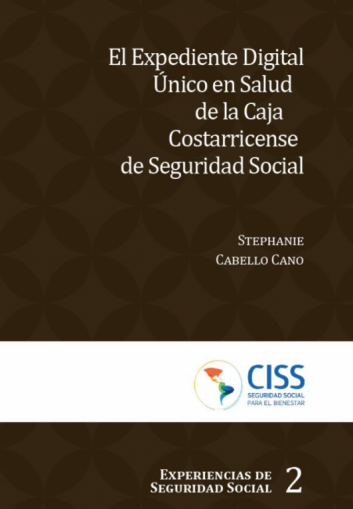
|
|
|
|

|
|
El centro virtual de operaciones en emergencias y desastres
En este primer número, la serie aborda un sistema de gestión de información y coordinación de respuestas ante situaciones de emergencias y desastres, desarrollado por el Instituto Mexicano del Seguro Social (IMSS). Este sistema es el Centro Virtual de Operaciones en Emergencias y Desastres (CVOED).
|
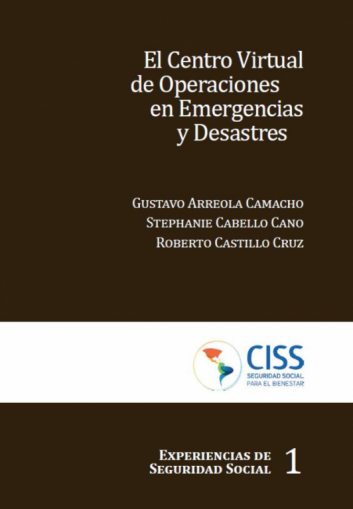
|
|
|
|

|
|
Hacia la protección de las personas trabajadoras de plataformas digitales
En este cuaderno de trabajo se analiza el tema de la protección de las personas trabajadoras en plataformas digitales, en especial en lo que se refiere al reconocimiento, protección y promoción de sus derechos laborales, el acceso a la seguridad social y la necesidad de establecer garantías pertinentes para el sector. Se emprende una revisión del trabajo de plataformas digitales a la luz de la...
|
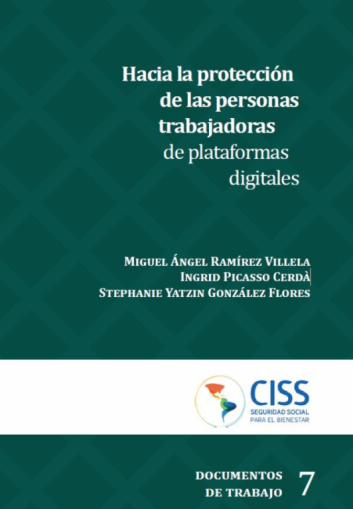
|
|
|
|

|
|
Los sistemas de información sobre seguridad social en las Américas
En el presente documento se mapea la producción de información estadística sobre seguridad social en las Américas desde tres esferas: organismos internacionales, ONE e instituciones de seguridad social de cada país, con la finalidad de identificar la disponibilidad, frecuencia y aspectos generalmente cuantificados. Este trabajo se divide en tres capítulos. En el primero se presenta un panorama...
|
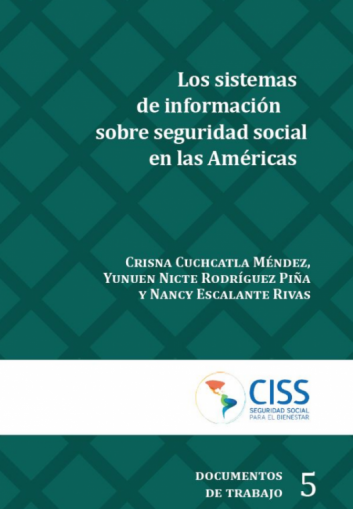
|
|
|
|

|
|
Estudio comparativo de los sistemas de salud en América Latina
El objetivo principal de este estudio es analizar los sistemas de salud en países de América Latina, tanto en sus características como en los resultados que han obtenido para mejorar la salud de sus poblaciones. Como señalan Okma y Marmor, es común que quienes toman decisiones en salud tengan que hacerlo bajo presiones de tiempo, y una de las maneras en que lo hacen es mediante la observación de...
|
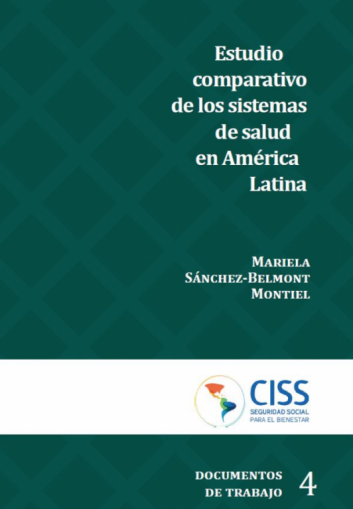
|
|
|
|

|
|
Propuesta hacia la construcción de un protocolo de desastres para instituciones de la seguridad social en las Américas
La coordinación con las instituciones, sectores y actores pertinentes permite que los sistemas de la seguridad social complementen la gestión del riesgo de desastres. Si bien los sistemas de seguridad social en las Américas se enfrentan a grandes retos, se sostiene que la coordinación intrainstitucional e intersectorial es un paso fundamental para la gestión de recursos escasos, la creación de...
|
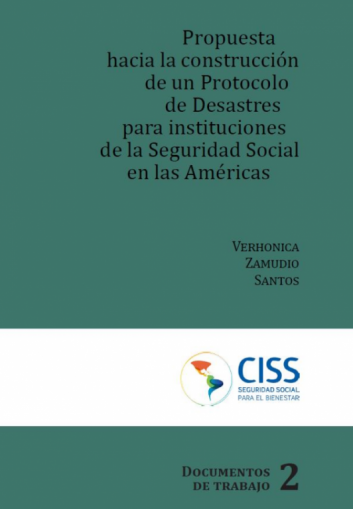
|
|
|
|

|
|
Relación de delegados asistentes a la VIII Asamblea General de la Conferencia Interamericana de Seguridad Social
Se presenta la relación de los delegados asistentes a la VIII Asamblea General de la Conferencia Interamericana de Seguridad Social, celebrada en la ciudad de Panamá, República de Panamá, del 18 al 24 de febrero de 1968.
|
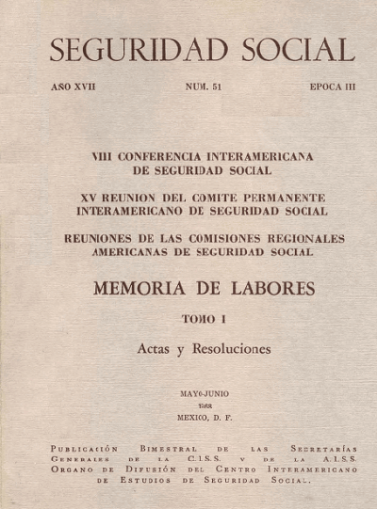
|
|
|
|

|
|
Informe de actividades 1996 y programa de trabajo 1997
Contiene el informe de labores correspondiente al año 1996 y el programa de trabajo para el año 1997, de la Comisión Americana Médico Social.
|
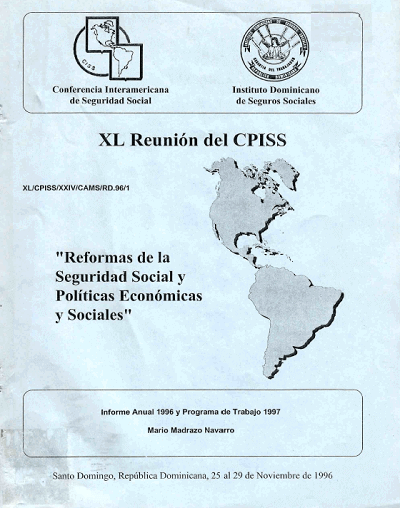
|
|
|
|

|
|
La introducción de cuentas básicas en México para enfrentar el problema de acceso al sistema bancario: diseño e impacto esperado
Este artículo presenta la experiencia mexicana en la introducción de cuentas de transacciones básicas. Las cuentas básicas son productos bancarios con funcionalidad restringida, relativamente baratos y sencillos, dirigidos a grupos sociales que tienen un acceso limitado a cuentas de transacciones. En el caso de México se introdujeron cuentas básicas de nómina y para el público en general. Por ley...
|
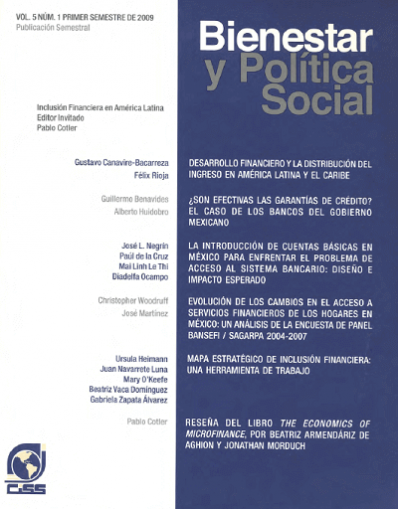
|
|
|
|

|
|
Workers' remittances and currency crises
We seek to further understand the factors that determine per emigrant remittances using data from 23 Latin American and Caribbean countries over the 1980-2003 period. We find that emigrants avoid remitting when the exchange rate is under pressure. This finding is consistent with the notion that remitters strive to reduce their exposure to exchange rate losses by taking into account the expected...
|
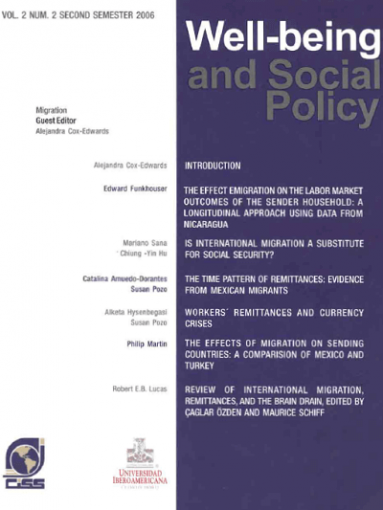
|
|
|
|

|
|
Book review. Improving the quality of education in Mexico: Positions and proposals, edited by Francisco Miranda, Harry Patrinos y Ángel López
This book gathers analyses performed by several authors on policies considered appropriate by the World Bank to enhance the quality of basic education provided in Mexico, in particular, education received by majority sectors in our society (World Bank: 2005).
|
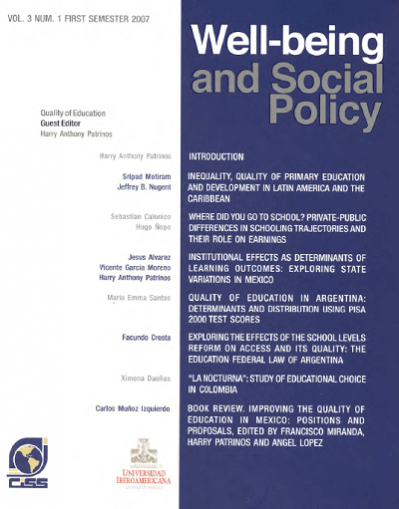
|
|
|
|

|
|
"La Nocturna": study of educational choice in Colombia
This study uses data from Colombia’s 2003 Encuesta de Calidad de Vida to examine how well do electricity strata (proxy for socioeconomic status) explain the choice decision for type of institution and session attended. In the model of choice by type – private vs. public universities – I find that as the electricity strata increases, the marginal probability of enrolling in a public university...
|
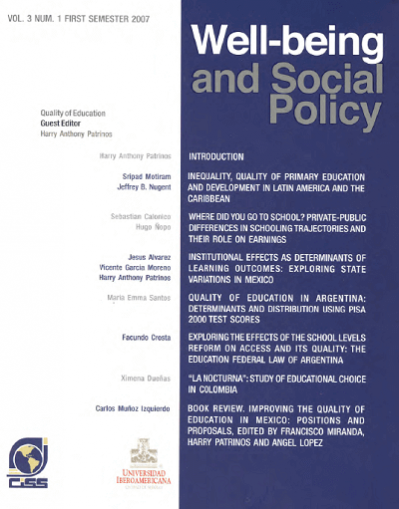
|
|
|
|

|
|
Exploring the effects of the school levels reform on access and its quality: the Education Federal Law of Argentina
Over the last decade, Argentina embarked on a broad education reform, the Federal Education Law (LFE), being its main objective to expand access to basic education, mainly, by a new organization of the schooling level structure with the extension of mandatory schooling from 7 to 10 years. The provinces reactions were heterogeneous. We try to evaluate the relationship among the LFE and access and...
|
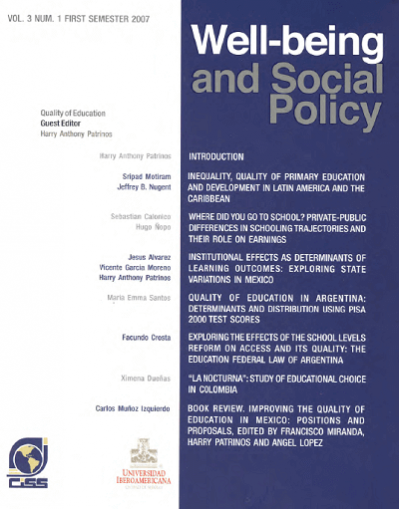
|
|
|
|

|
|
Quality of education in Argentina: determinants and distribution using PISA 2000 test scores
In this paper we study the determinants and distribution of learning outcomes in Argentina I measured by PISA 2000 reading and math test scores. To do that, we estimate education production functions at the mean of the distribution using survey regressions and at different parts of the score 's distribution with quantile regressions. In terms of educational policy aimed at improving learning...
|
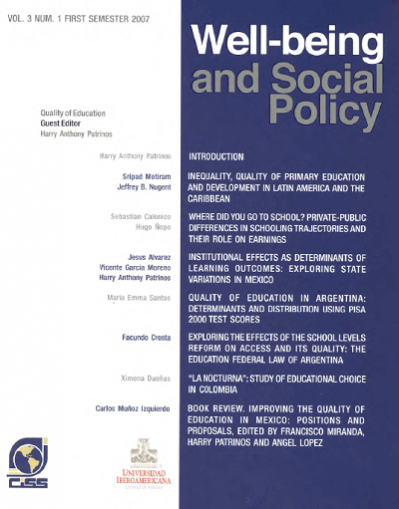
|
|
|
|

|
|
Institutional effects as determinants of leaning outcomes: exploring state variations in Mexico
We use the PISA 2003 student-level achievement database for Mexico to estimate state education production functions. Student characteristics, family background, home inputs, resources and institutions are controlled for. We take advantage of the state-level variation and representative sample to analyze the impact of institutional factors such as state accountability systems and the role of...
|
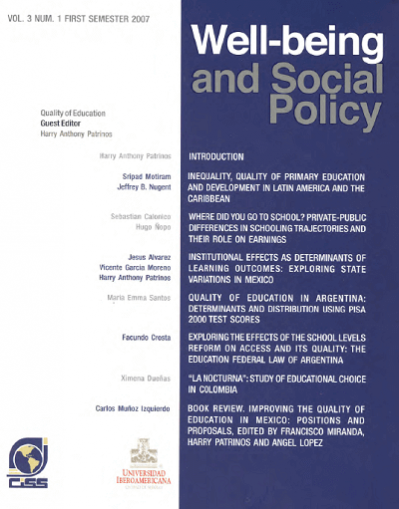
|
|
|
|

|
|
Where did you go to school? Private-public differences in schooling trajectories and their role of earnings
The private provision of educational services has been representing an increasing fraction of the Peruvian schooling system, especially in recent last decades. While there have been many claims about the differences in quality between private and public schools, there is no complete assessment of the different impacts of these two type of providers on the labor markets. This paper is an attempt...
|
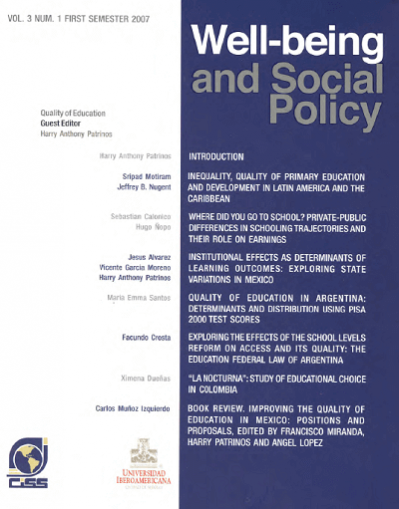
|
|
|
|

|
|
Inequality, quality of primary education and development in Latina America and the Caribbean
This paper draws on a political economy model to hypothesize that the quality of education is likely to be lowered by both economic and political inequalities. In particular, we utilize a panel data set across countries and over time to test the applicability of the hypothesis to quality of education indicators at the primary level. Among the four specific indicators of primary education assigned...
|
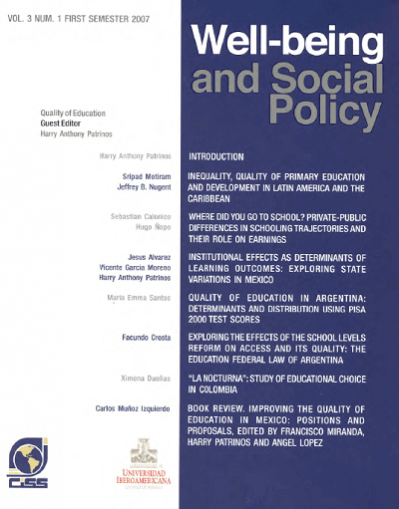
|
|
|
|

|
|
Introduction (about the international conference on "The quality of education in Latin America and the Caribbean")
The Inter-American Conference on Social Security (CISS) and Universidad Iberoamericana (UIA) co-hosted an international conference on "The Quality of Education in Latin America and the Caribbean" in February 2007. The main obj ective of the conference was to examine quality of education in the region, the determinants of learning, policy and program evaluation, and the impact of quality of...
|
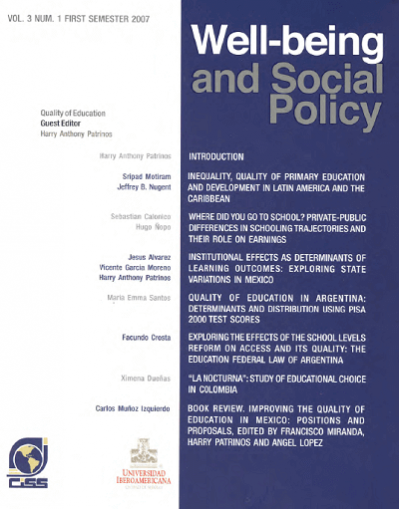
|
|
|
|

|
|
Review of International migration, remitances, and the brain drain, edited by Çaglar Özden y Maurice Schiff
As the volume title suggests, three of the studies deal with the effects of remittances on incomes and measures of well-being, four address various aspects of highly skilled migration, while the remaining paper examines the determinants of migration from rural Mexico to the US. Each of these is certainly topical: the rise in reported global remittance flows has been a major spur to the recent...
|
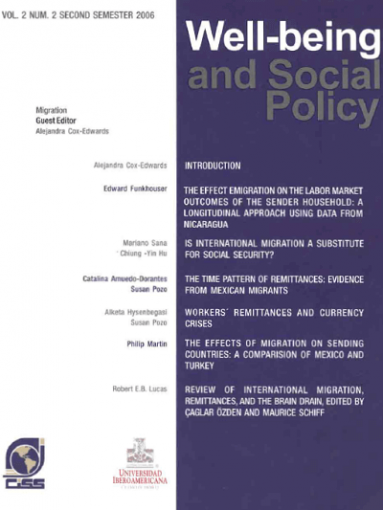
|
|
|
|

|
|
The effects of migration on sending countries: a comparison of Mexico and Turkey
International migrants are persons who cross national borders and remain outside their countries of birth or citizenship for 12 months or more, regardless of the reason for being abroad or legal status while abroad. According to UN estimates, the number of international migrants was 191 million in 2005, and half were in the labor force of the destination country. International labor migration...
|
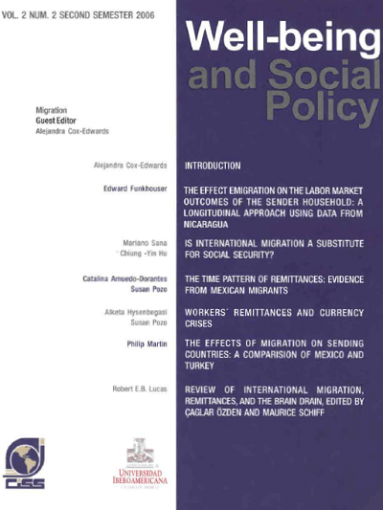
|
|
|
|
|